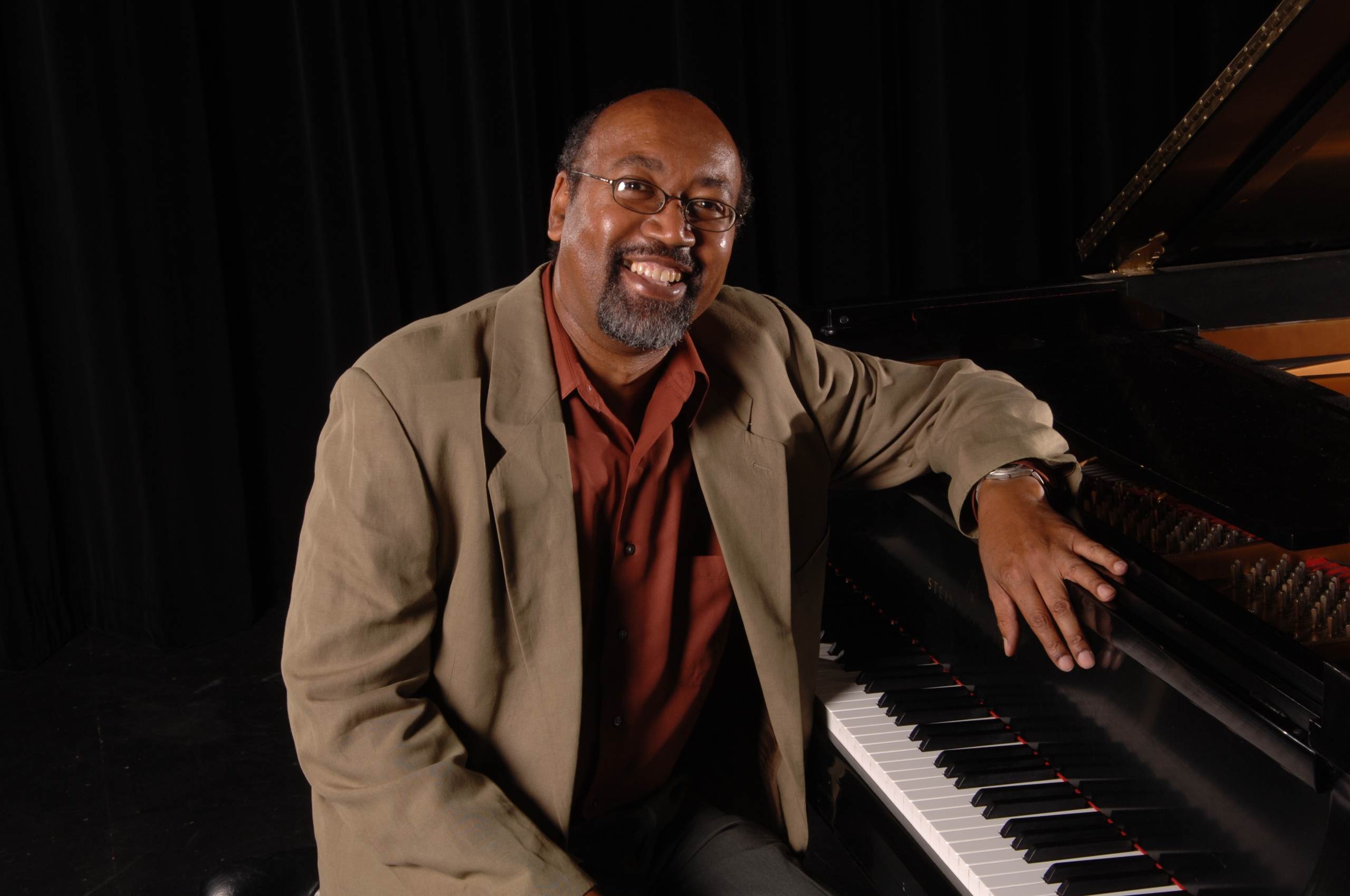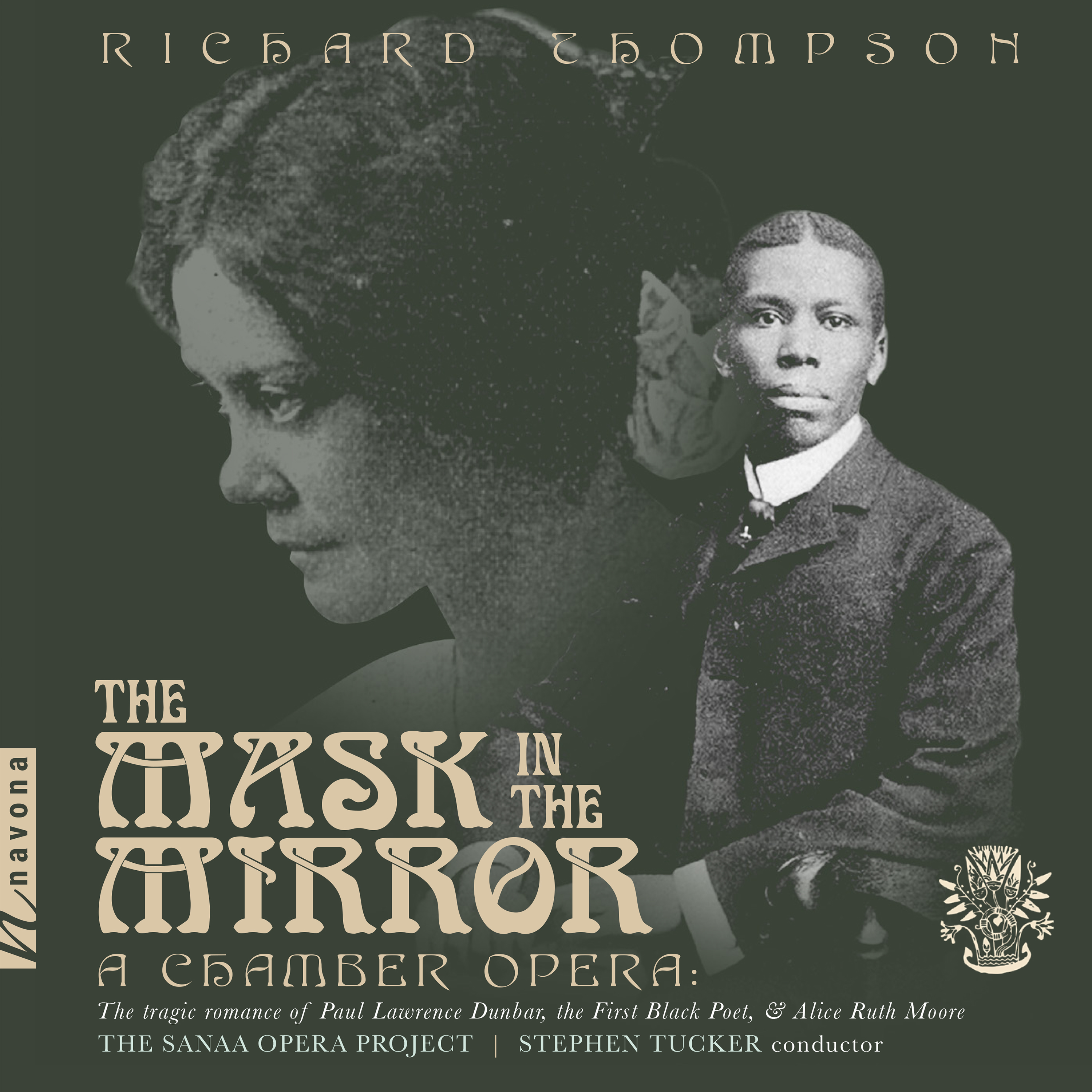
Richard Thompson is a performer and composer whose work encompasses jazz and Third Stream composition. Originally from Aberdeen Scotland, Richard made his debut as a concert pianist at the Purcell Room, Queen Elizabeth Hall in London in 1984. He earned his undergraduate degree in music from the University of Edinburgh in Scotland, his graduate degree from Rutgers University in New Jersey, and a jazz diploma from Berklee College of Music in Boston. While at Rutgers University, Richard studied jazz piano with Kenny Barron and classical piano with Theodore Lettvin. Richard is currently Associate Professor of Music at San Diego State University.
Richard’s chamber opera, THE MASK IN THE MIRROR—a dramatization of the courtship and marriage of poet Paul Laurence Dunbar to Alice Ruth Moore—was premiered in 2012 by Trilogy Opera, based in Newark NJ, under the artistic directorship of Kevin Maynor.
Today, Richard is our featured artist in “The Inside Story,” a blog series exploring the inner workings and personalities of our artists. Read on to discover how this piece went from the concept for a short dramatic performance to a full opera…
Who was your first favorite artist(s) growing up?
Growing up I heard a lot of jazz because my father was a jazz trumpet player. I heard a lot of Duke Ellington’s music. We had a few LPs and some old 78s. He took special pride in playing those records. I also liked small group jazz. My favorite was the jazz pianist Bud Powell. At a certain point my mother joined a record club for classical music. I remember the first record was Tchaikovsky’s Sleeping Beauty. Soon after that came a piano recital by Shura Cherkassky. I just loved hearing the hundreds of cascading notes. It made me want to learn to play the piano! There was a lot of Chopin’s music on the album and I was completely enthralled by it. From an early age I was surrounded by both kinds of music. Now that I am an adult, things haven’t changed!
When did you realize that you wanted to be an artist?
I came from a musical family and it was kind of obvious that I would be a musician. For a little while I thought about being a lion tamer. That idea didn’t last too long. Besides, I am allergic to pretty much everything! I remember seeing someone on BBC TV giving a piano recital. I decided that I wanted to do that. I started piano lessons when I was 8 years old. I learned very quickly. Everything was so much fun and so easy. When I was 10 years old I wrote my first piece. I found that fun, too. I remember it was called Saturday Morning. It was programmatic, of course. I was trying to depict the frantic efforts involved in getting me to my piano lesson on Saturday mornings. The piece was kind of crazy, changing key for no apparent reason every few bars.
If you could spend creative time anywhere in the world, where would it be and why?
If I could travel to somewhere to be creative, I would probably go to Ghana. I would like to find out more about the culture which contributed to the birth of jazz. I would have a chance to study the music and culture in general, which I am sure would enrich me a lot. My style of composition embraces both European and African American traditions. Knowledge is always a good thing!
If you could instantly have expertise performing one instrument, what instrument would that be?
I have been thinking for some time now about learning the cello. I love the sound of it. Luckily, cellists in general don’t have to play as many notes as violinists do. If I could learn an instrument instantaneously, it would be the cello. But then again, it’s the journey, the step by step progression, that is the really rewarding part. I got as far as Suzuki, Book One, when my daughter was learning. After a while she was way better than me.
What was your favorite musical moment on the album?
For me, there are a few special moments. The first one that occurs to me is the duet in Act 2, scene 4, when Paul and Alice sing “Love me, love as I am.” I think the words crystallize their essential dilemma as human beings: flawed and conflicted, but trying to go forward in life. There are not many ensemble moments in the opera and that was quite deliberate on my part. I wanted the piece to be a sung play as much as possible. For me, the telling of the story and making clear the psychology of the characters was the most important thing. When the duets and trios happen, the music can open up somewhat and exist on another level. There is time to be in a special emotional space and survey the interior panorama of the characters.
I also think of “Jump Back, Honey, Jump Back.” The reasoning is the same. What I think of is the depiction of a different cultural world, as epitomized by the dialect poem of the same name. It is so far removed from “We Wear the Mask,” but it is still part of Dunbar. Paul refers to that as “the part the world would rather not see.”
Finally, I would have to mention the duet and trio from Act 3, scene 2, which explores Dunbar’s complex relationship with his mother. Technically, that was probably the hardest music to write. I am pleased with the way it came out.
What does this album mean to you personally?
The album represents the culmination of work over many years. Initially I had no intention of writing an opera. I didn’t think I could do such a thing! My original plan was to write some short dramatic piece for voice and piano that told some small part of Paul Dunbar’s life story. As I found out more about his life, I realized I had more work to do. I must say that writing this piece was a great source of fulfillment for me. Writing the final bars was a bittersweet experience.
Is there a specific feeling that you would like communicated to audiences in this work?
I guess I want audiences to understand Dunbar’s incredible strength of will. He struggled against the racial barriers of his era and won, through hard work, intelligence, and, of course, talent. At one point he was the most famous poet in America. Just think; he grew up with parents who were illiterate! He didn’t have the advantage of some prestigious scholarship or elite school. He just worked at his art and craft on his own. He was certainly very flawed as a human being, for a variety of reasons. This teaches us that someone does not have to be “perfect” to achieve something memorable or significant to the world at large. Also it shows us that having talent does not offer any guarantees concerning the other other areas of human life. I think his story is highly relevant to our modern society.

THE MASK IN THE MIRROR is now available through Navona Records for streaming or purchase. Click here to discover this new album.

Richard Thompson is a performer and composer whose work combines African-American and European traditions. Originally from Aberdeen, Scotland, Thompson made his debut as a pianist at the Purcell Room, Queen Elizabeth Hall in London, in 1984. Thompson’s orchestral appearances include concerts with the Orchestra Nova, San Diego, San Diego State University Symphony Orchestra, Glasgow Chamber Orchestra, and Aberdeen Chamber Orchestra.
